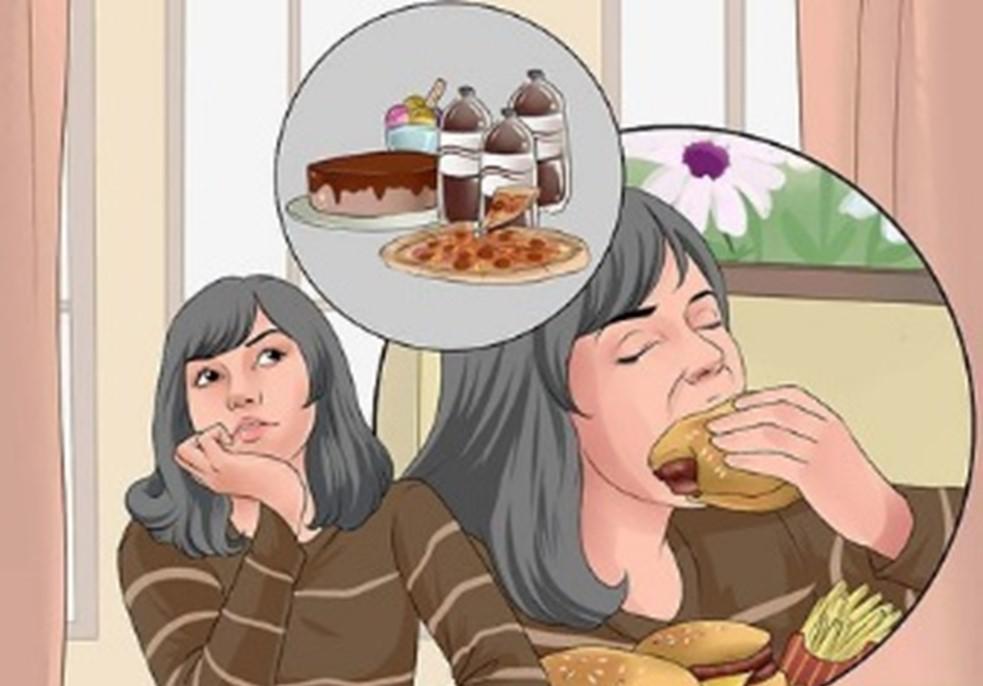
Bulimia Nervosa is a complicated and distressing mental health condition that impacts millions of people worldwide. This disorder can inflict havoc on a person's physical and psychological health, as it is characterized by recurrent episodes of binge eating followed by purging behaviors such as vomiting, laxative abuse, or excessive exercise. This blog will delve deeply into Bulimia Nervosa, investigating its definition, causes, symptoms, and recovery path. We will rely on credible online resources to provide a thorough comprehension of this difficult condition.
Understanding Bulimia Nervosa
Bulimia Nervosa is a significant eating disorder categorized as a psychiatric disorder. It typically begins in adolescence or early adulthood and predominantly affects women. Males can also experience Bulimia Nervosa, albeit less frequently.
At the core of this disorder is the binge-purge cycle, in which individuals consume large amounts of food in a brief period of time while feeling out of control. After a binge, the individual engages in compensatory behaviors to rid their bodies of the excess calories due to overwhelming feelings of guilt, shame, and dread of weight gain.
6 Key features of bulimia nervosa include:
1. Binge eating: During a binge episode, individuals consume an excessive amount of food in a discrete period, often feeling a loss of control over their eating during this time. Binge eating is usually accompanied by feelings of guilt, shame, or disgust.
2. Compensatory behaviors: In an attempt to counteract the effects of binge eating, individuals with bulimia nervosa engage in various compensatory behaviors, such as self-induced vomiting or excessive exercise. These behaviors are used to prevent weight gain and are often driven by a fear of gaining weight or body dissatisfaction.
3. Body image concerns: People with bulimia nervosa tend to have a distorted perception of their body shape and weight. They may believe that they are overweight, even if they are underweight or of average weight.
4. Cycle of secrecy and shame: Many individuals with bulimia nervosa feel embarrassed or ashamed of their behavior, leading them to keep their eating patterns and struggles with food a secret from others.
5. Physical consequences: Repeated binge eating and purging can have serious physical consequences, including electrolyte imbalances, dehydration, gastrointestinal problems, dental issues, and more. Over time, these health problems can become severe and even life-threatening.
6. Co-occurring psychological conditions: Bulimia nervosa often co-occurs with other psychological conditions, such as depression, anxiety disorders, and substance abuse.
Signs and Symptoms
Recognizing the signs of Bulimia Nervosa is crucial for early intervention and support. Some common symptoms include:
- Frequent episodes of binge eating, often in secret and feeling out of control.
- Engaging in purging behaviors such as self-induced vomiting, misuse of laxatives or diuretics, fasting, or excessive exercise.
- Preoccupation with body weight, shape, and appearance.
- Repeatedly visiting the bathroom after meals.
- Fluctuations in weight.
- Physical signs like swollen salivary glands, calluses on the knuckles (Russell's sign), and dental problems.
Causes and Risk Factors
Bulimia Nervosa arises from a complex interplay of genetic, psychological, environmental, and social factors.
While the exact cause remains unclear, some contributing factors include:
a) Genetic predisposition: Studies suggest a genetic component may increase susceptibility to eating disorders.
b) Psychological factors: Low self-esteem, perfectionism, and a negative body image can contribute to the development of Bulimia Nervosa.
c) Environmental influences: Societal pressure to attain a specific body ideal and cultural emphasis on thinness may play a role.
d) Co-occurring mental health disorders: Anxiety, depression, and obsessive-compulsive disorder often coexist with Bulimia Nervosa.
Treatments
Your healthcare provider may treat bulimia nervosa using a variety of techniques. They may refer you to a team of specialists including dietitians and mental health professionals. Treatments may include:
- Psychotherapy: Cognitive-behavioral therapy is a type of individual counseling. It focuses on changing your thinking (cognitive) and behavior (behavioral). Treatment includes techniques for developing healthy attitudes toward food and weight. It also includes approaches for changing the way you respond to difficult situations.
- Nutritional counseling: Nutrition counseling involves learning healthier ways to eat. You will work with a registered dietitian or counselor to get back on track.
- Medication: Selective serotonin reuptake inhibitors are a type of antidepressant. They can reduce the frequency of binge eating and vomiting. But the long-term effectiveness of these drugs isn’t clear. They are also effective at treating anxiety and depression. These conditions are common among people with bulimia nervosa.
- Support groups: Support groups can be helpful when used with other forms of treatment. In support groups, people and their families meet and share their stories.
Conclusion
Bulimia Nervosa is a severe eating disorder with significant physical and psychological implications. Understanding its complexities, recognizing the signs, and providing support are essential steps toward helping individuals on their path to recovery. Early intervention, professional treatment, and a strong support system are crucial elements in breaking the chains of Bulimia Nervosa and fostering a healthier relationship with food and body image.
If you or someone you know is struggling with Bulimia Nervosa, don't hesitate to seek help from healthcare professionals or reach out to organizations like NEDA for guidance and support. Together, we can create a compassionate and understanding community that promotes healing and recovery.
REFERENCES:
www.nationaleatingdisorders.org/
www.eatingdisorderhope.com/information/bulimia
www.mayoclinic.org/diseases-conditions/bulimia/symptoms-causes/syc-20353615